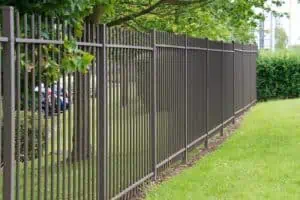If Your Neighbor’s Tree Falls on Your Fence, Who Pays For Removal?
Despite their regal appearance, mature landscapes with imposing trees can be a source of conflict between neighbors. A well-maintained tree can be an asset, but a tree can also cause problems if it falls on your home or yard. There are several steps you can take to prevent this from happening.
(Looking for wood fence styles? Contact us today!)

First, you should be aware of the most common reasons why trees fall. This is especially true if you have an insurance policy. You will also want to be proactive in assessing your trees for damage, including limbs that may have fallen, and dead or dying branches. The good news is that most insurance companies offer limited protection for tree removal.
Trees are also a good indicator of the weather. If your neighbor has a tree that has fallen and fallen onto your property, you will want to get in touch with your insurance company to see if they can help. A tree that falls on your property might not cause much damage, but it could create a roadblock for drivers. In addition, if a tree falls on your neighbor’s property, the insurance company will likely want to know if it was caused by lightning or wind, as these are a much more common cause of tree loss.
The best way to determine the cause of a tree’s fall is to have a professional tree appraiser check out the tree for you. If the tree is in poor health or has fallen, the insurance company may offer to pay for its removal. However, if it is a mature tree, you will want to consider the cost of removing the tree before you ask your insurer to help. The insurance company will likely have a deductible that you must pay before they will cover the tree’s removal.
If you are a homeowner, you might want to consider a tree as a landscaping feature, but you may have to pay for it if it falls on your property. While this is true, it is not always the case. Some trees are planted by previous homeowners and will toe the line, even if they are a few feet off the property line. Some trees also fall due to lightning or wind, but if you are fortunate enough to have an insurance policy, you should be able to get the tree removed without a hassle.
While the homeowner’s insurance policy will not cover the cost of having a tree removed, it should at least pay for the cost of damage to your home. You can also use your insurance to cover the cost of removing debris from your yard. You might also be able to sue your neighbor for negligence if the tree fell on your property without your permission. You should also ask your insurance company if there is any extra coverage you might be eligible for.
The most important thing to remember is that you should never assume that your neighbor is responsible for anything. If you do find out that your neighbor is responsible, you are obligated to file a claim with your insurer.

